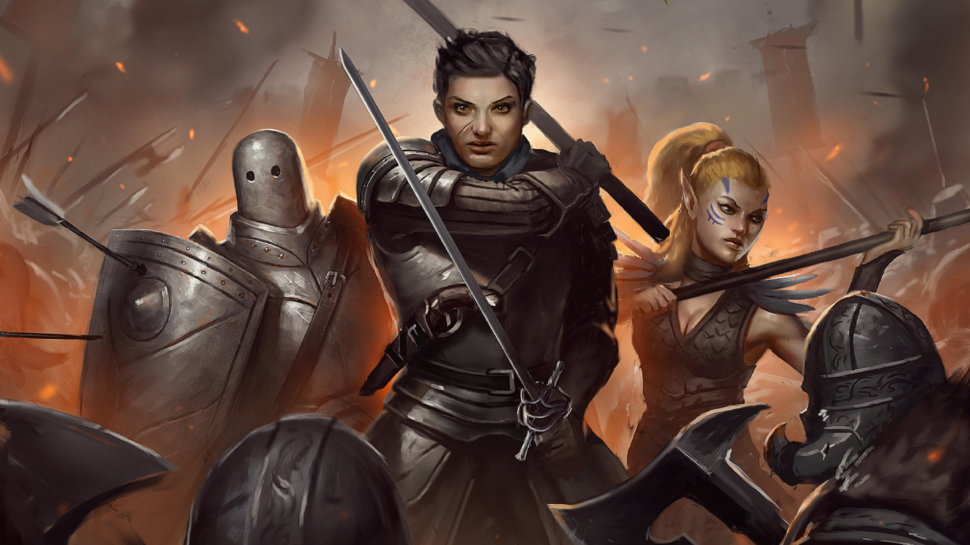|
Everyone has their own idea of what a gaming experience should be. However, one of the more popular defenses that comes up whenever a player points out that there’s unnecessary racism or sexism in a setting, or how certain themes or tones aren’t what they’re looking for, is simply to say, “Well, that’s just the way things were back then.” This is a colossally stupid statement. Let’s break down some reasons why, shall we? 1) Back When, Exactly? The biggest reason this defense falls flat on its face is that most of our games aren’t taking place in a real history (or even a real future, for the sci-fi players out there). They’re drawing on historical elements and weaving them together into a fantasy narrative. Just because there’s knights and lances along with crossbows and feudalism, though, that doesn’t make Westeros a realistic depiction of medieval England anymore than it makes a leopard the same thing as a leopard seal. Comparing the reality of your game world (a game which often has dragons, magic, and dozens of sentient races in it) to, say, Germany in the 1300s is nonsensical. You need to take the game world as it exists on its own merits, rather than justifying why things exist by comparing them to a completely different planet and saying they’re somehow comparable. Because they aren’t. 2) The Game World Is What You Want It To Be Unless you play with absolute purists, most groups are willing to alter the rules of a game in order to make it better fit with what they want. They’ll ignore this feat, or toss out that restriction, or change the damage die this particular weapon deals, until everyone agrees this version of the rules better suits them. Altering the rules of the world so they’re amenable to everyone at the table is no different. Some time back, I wrote a blog post titled Authors, Every Awful Thing That Happens in Your Book Really is Your Fault. The point of that post, which definitely applies here, is that a thing exists in your game world because you choose for it to exist, and because everyone at the table, in some capacity, agrees that it should be there. If you all mutually agreed that you didn’t want dragons in your game, or the ability to resurrect the dead, you could mark it out with a single stroke of your house rules pen. You could do the same for prejudices, abhorrent behaviors, or things that make your players uncomfortable, too. There is literally nothing stopping you. 3) History is Likely WAY Different Than You Think It Is Something I’ve noticed is that the more often someone raises a defense of historical accuracy, the less often that person is deeply learned in the history they’re talking about. As an example, the article Vikings Were Never The Pure-Bred Master Race White Supremacists Like to Portray, talks about how there was a surprising amount of diversity among Viking crews. And why wouldn’t there be? They’re pirates after all! One man dies in a raid, you don’t sail all the way back to Scandinavia to find a replacement; you recruit whatever local talent is around who can do Einar’s old job. Examples of stuff like this are all over when history is used to defend the negative aspects in a setting; from intolerance to a refusal to allow migration (in case you wanted to play someone who was the child of immigrants, as an example) it’s the same tune over and over again. Yet at the same time, we forget just how gay the Spartans were, or how Japanese mercenaries warred with the Dutch when that enemy was half a world away. For every example of prejudice, othering, and violence we find in the history books, there are equal examples of cultures where certain ideas we consider fringe, radical, or just uncommon were a part of the everyday; like how Native Americans respected trans identities in ways that seem like a utopia compared to what we often see in today’s world. Take Inspiration From History, But Responsibility For Your Game History is full of cool stuff, unusual personages, lost empires, and strange legends. It makes for great reading, by and large. However, it’s important to remember that the game you see in front of you is your responsibility, and no one else’s. If something is upsetting your players, or people object to a certain kind of content, you don’t get to shrug your shoulders and duck the blame. It’s your game, so make it the best it can be. For more gaming insights from Neal Litherland, check out his blog Improved Initiative, as well as his Gamers archive. Alternatively, to take a look at some of his books, head over to his Amazon Author Page! Picture Reference: https://geekandsundry.com/song-of-swords-the-historical-fantasy-tabletop-rpg-with-gritty-tactical-combat/ |
All blog materials created and developed by the staff here at High Level Games Archives
April 2023
Categories
All
|
Proudly powered by Weebly


 RSS Feed
RSS Feed